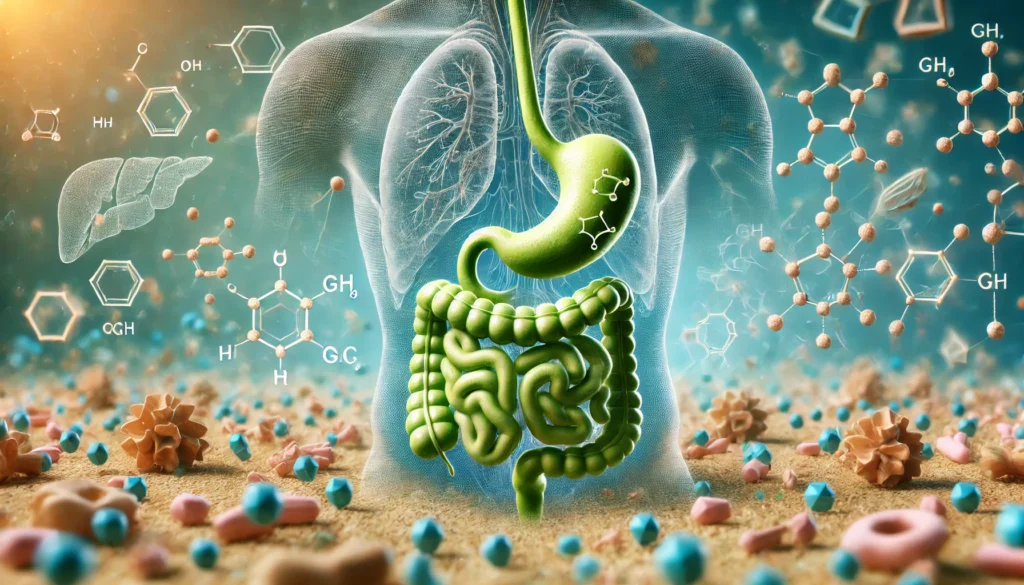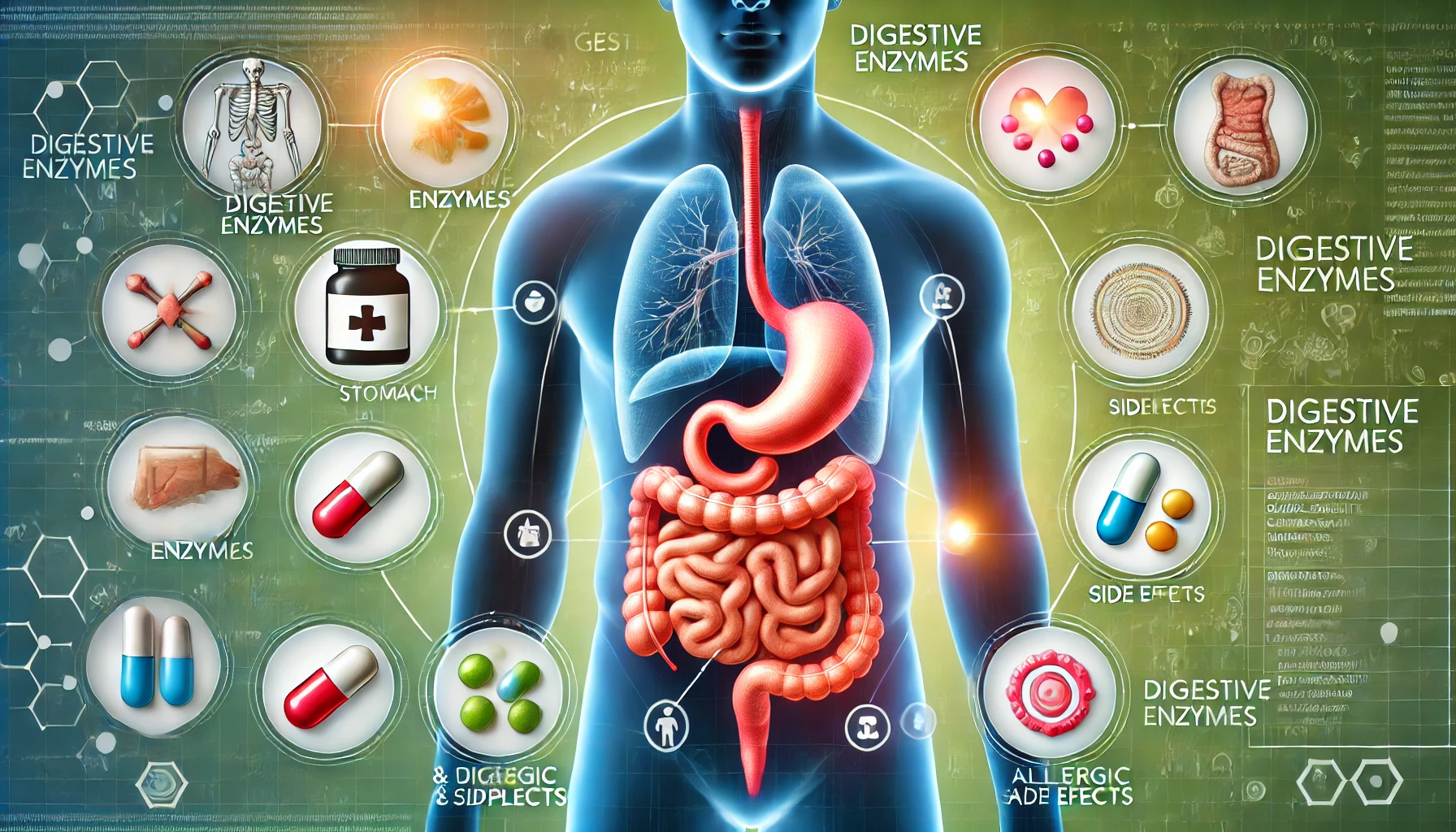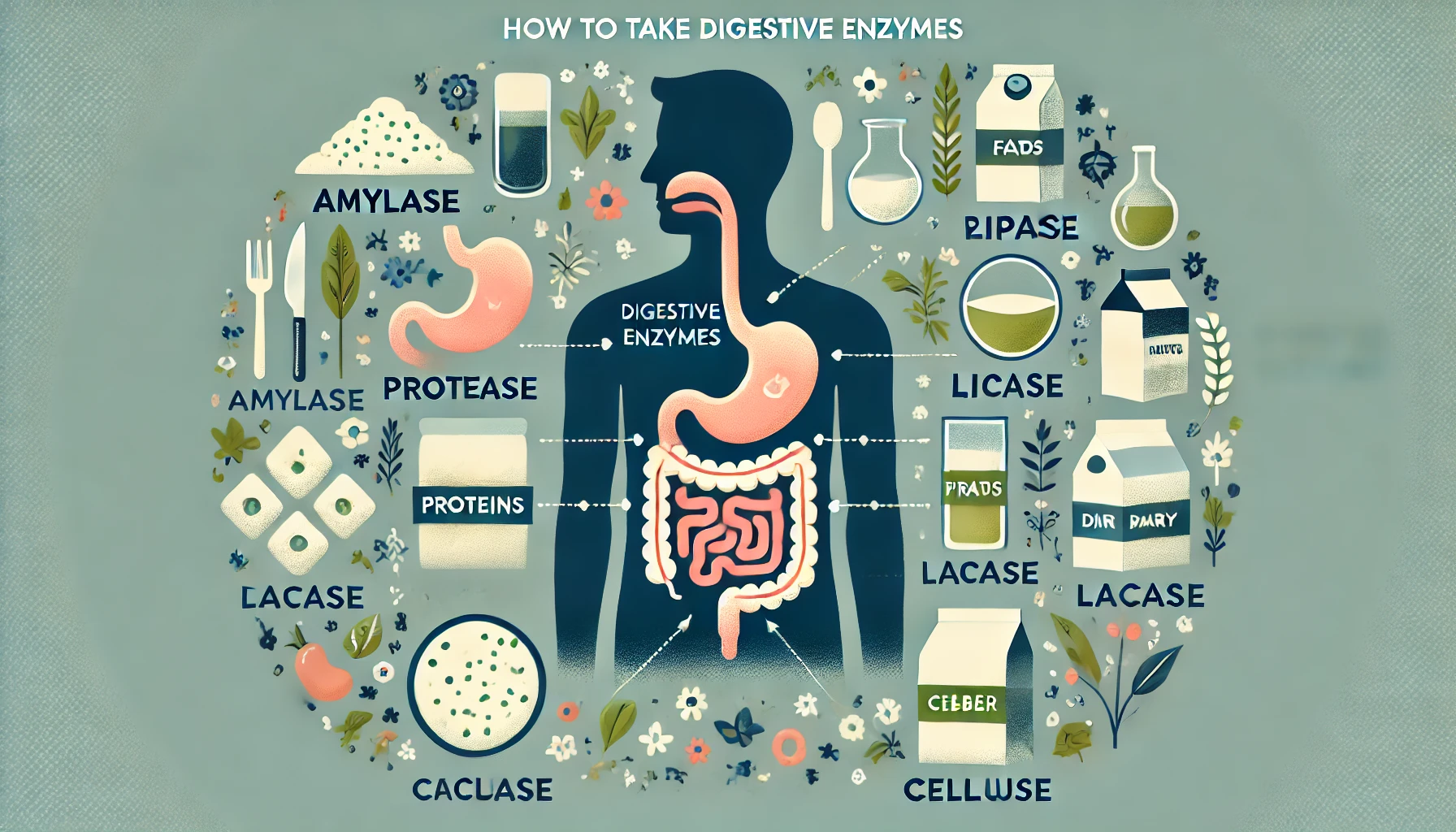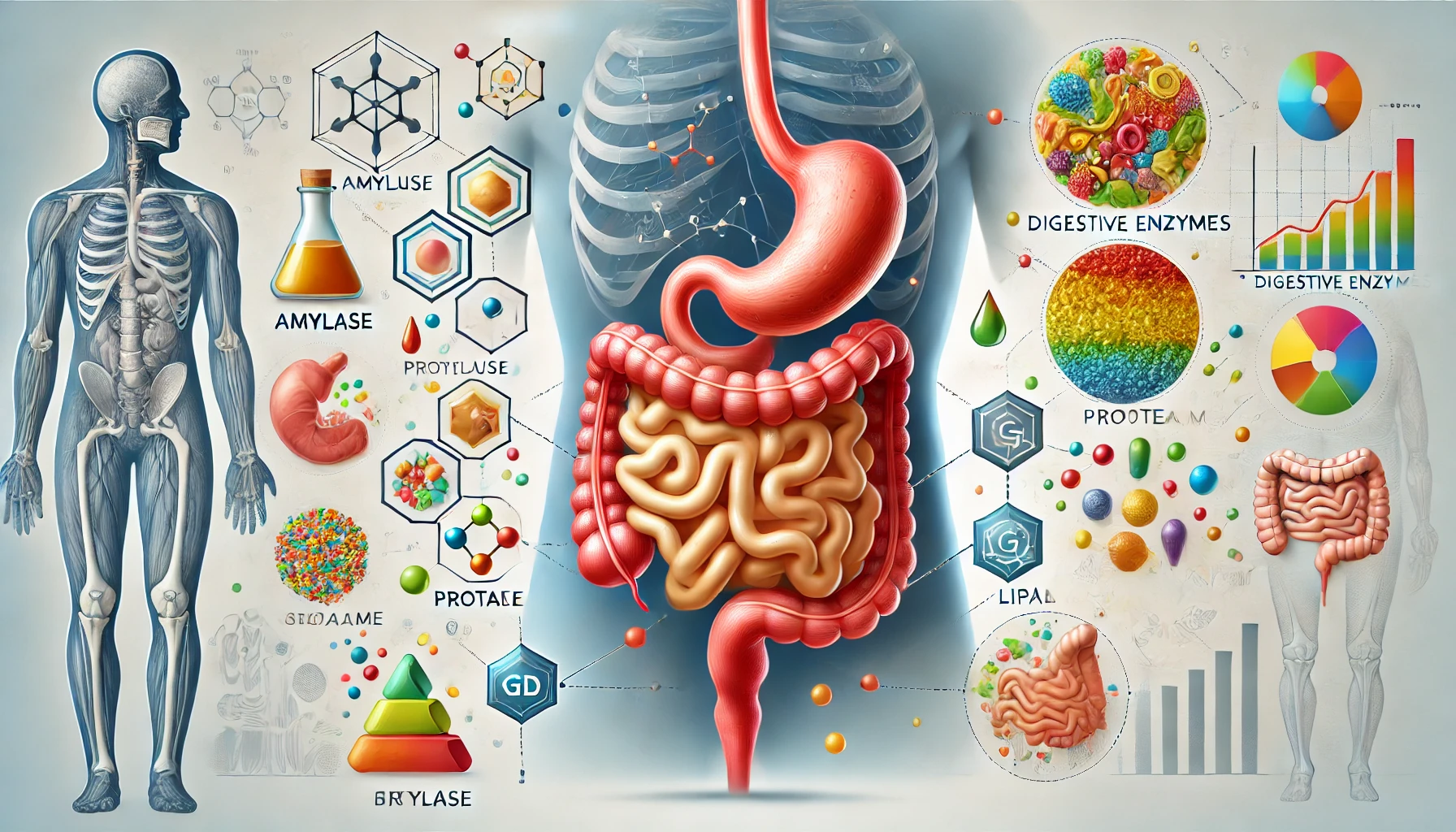Gluten intolerance, also known as non-celiac gluten sensitivity, is a condition that affects many people worldwide. While it doesn’t involve the autoimmune response seen in celiac disease, gluten intolerance can still cause significant discomfort and digestive issues. Digestive enzymes have been proposed as a potential solution to help those who struggle with gluten intolerance by breaking down gluten proteins more effectively in the digestive tract. This article explores how digestive enzymes can support those with gluten intolerance and the science behind their effectiveness.

Understanding Gluten Intolerance
Gluten intolerance involves a range of symptoms that occur after consuming gluten, a protein found in wheat, barley, and rye. Symptoms can include bloating, diarrhea, stomach pain, and fatigue. Unlike celiac disease, which damages the small intestine, gluten intolerance does not cause intestinal damage, but the symptoms can be severe and disruptive to daily life.
Summary: “Gluten intolerance is a condition characterized by digestive discomfort following the consumption of gluten. Unlike celiac disease, it does not cause intestinal damage but still leads to significant symptoms.”
The Role of Digestive Enzymes in Gluten Breakdown
Digestive enzymes are proteins that help break down food into smaller components, making it easier for the body to absorb nutrients. In the case of gluten intolerance, specific digestive enzymes known as proteases can help break down gluten proteins, reducing the likelihood of triggering symptoms. Some enzyme supplements are designed to target the proline-rich gluten peptides that are particularly resistant to digestion.
Summary: “Digestive enzymes, particularly proteases, can aid in breaking down gluten proteins, potentially reducing the symptoms associated with gluten intolerance.”
Effectiveness of Digestive Enzymes for Gluten Intolerance
Research on the effectiveness of digestive enzymes for gluten intolerance is still emerging. Some studies suggest that enzyme supplements can help reduce symptoms in people with gluten intolerance by breaking down gluten before it reaches the small intestine. However, it’s important to note that these enzymes are not a cure for gluten intolerance and should not be seen as a substitute for a gluten-free diet.
Summary: “Digestive enzymes may help alleviate symptoms of gluten intolerance by breaking down gluten proteins, but they are not a replacement for a gluten-free diet.”
How to Choose the Right Digestive Enzyme Supplement
When selecting a digestive enzyme supplement for gluten intolerance, it’s crucial to look for products that contain the specific enzymes needed to break down gluten, such as dipeptidyl peptidase IV (DPP-IV). Additionally, quality and brand reputation are important factors to consider. Consulting with a healthcare provider before starting any new supplement is always recommended.
Summary: “Choosing the right digestive enzyme supplement involves selecting products with specific enzymes like DPP-IV, and ensuring the product is of high quality and reputable.”
FAQs
Can digestive enzymes completely prevent symptoms of gluten intolerance?
Digestive enzymes may reduce symptoms but cannot completely prevent them. They should be used in conjunction with a gluten-free diet.
Are digestive enzymes safe for everyone?
Most people can safely use digestive enzymes, but it’s essential to consult with a healthcare provider before starting any new supplement, especially if you have underlying health conditions.
How quickly do digestive enzymes work?
Digestive enzymes typically begin working within minutes of consumption, helping to break down food as it moves through the digestive tract.
The Final Note
While digestive enzymes offer a promising way to manage gluten intolerance, they are not a cure-all. A gluten-free diet remains the cornerstone of managing gluten intolerance. Digestive enzyme supplements may serve as an additional tool for those seeking to minimize symptoms, but they should be used responsibly and under the guidance of a healthcare professional.
For those interested in exploring digestive enzyme supplements, check out the comprehensive list of the best options available here.





